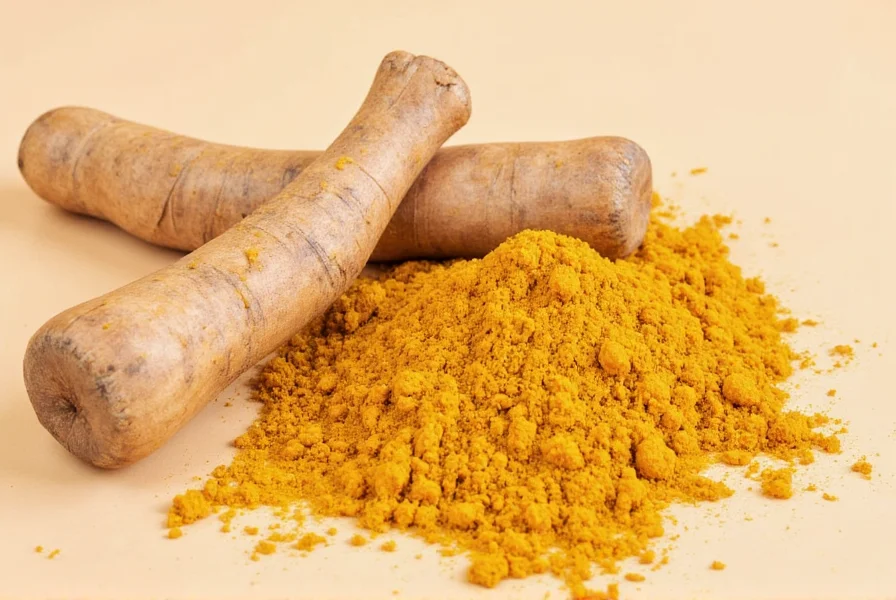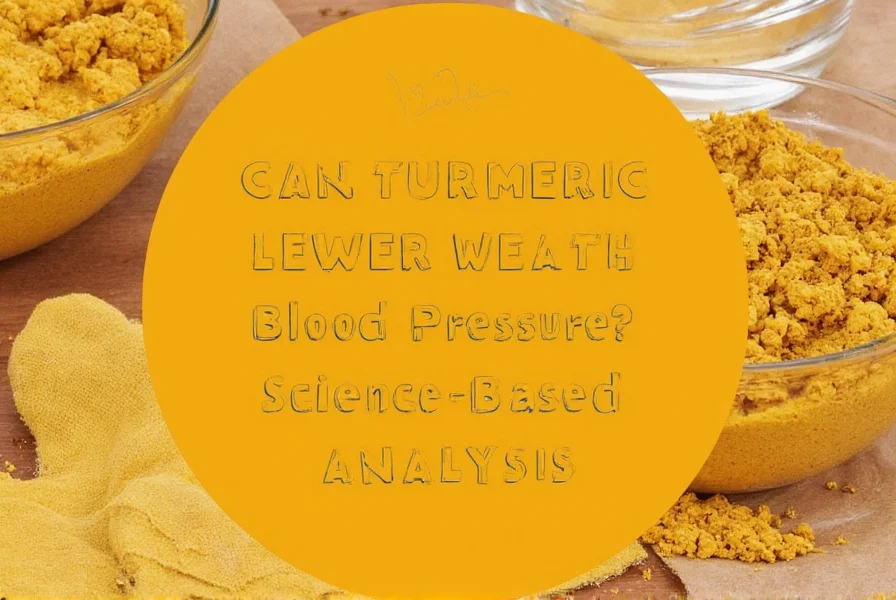Curcumin, the primary bioactive compound in turmeric, has gained attention for its potential cardiovascular benefits. Research suggests it may help lower blood pressure through several biological mechanisms, though the evidence remains preliminary and requires further investigation.
How Turmeric Might Affect Blood Pressure
Turmeric's potential blood pressure benefits appear connected to curcumin's anti-inflammatory and antioxidant properties. When examining does turmeric lower blood pressure naturally, researchers have identified several possible mechanisms:
- Endothelial function improvement - Curcumin may enhance nitric oxide production, which helps blood vessels relax and dilate
- Reduced oxidative stress - By neutralizing free radicals, curcumin might protect blood vessels from damage
- Anti-inflammatory effects - Chronic inflammation contributes to hypertension, which curcumin may help address
- ACE inhibition - Some studies suggest curcumin may act similarly to ACE inhibitor medications

What the Research Shows
Several clinical studies have investigated the relationship between turmeric consumption and blood pressure. A 2021 meta-analysis published in Phytotherapy Research reviewed 11 randomized controlled trials involving 850 participants. The analysis found that curcumin supplementation was associated with an average reduction of 1.7 mmHg in systolic blood pressure and 1.2 mmHg in diastolic blood pressure compared to control groups.
While these reductions appear modest, they become more significant when considering how much turmeric lowers blood pressure in specific populations. For example, a 2019 study in the Journal of Clinical Hypertension found that participants with metabolic syndrome who took 1500 mg of curcumin daily for 12 weeks experienced an average 8.5 mmHg reduction in systolic blood pressure.
| Study | Participants | Curcumin Dose | Duration | Blood Pressure Change |
|---|---|---|---|---|
| DiSilvestro et al. (2019) | 117 with metabolic syndrome | 1500 mg/day | 12 weeks | ↓ 8.5 mmHg systolic |
| Puca et al. (2020) | 60 with type 2 diabetes | 1000 mg/day | 8 weeks | ↓ 5.2 mmHg systolic |
| Sanmukhani et al. (2014) | 75 with acute coronary syndrome | 500 mg/day | 6 weeks | ↓ 3.7 mmHg systolic |
Effective Dosage and Bioavailability Considerations
When exploring does turmeric lower blood pressure effectively, dosage and absorption matter significantly. Most studies showing positive effects used standardized curcumin extracts providing 500-1500 mg of curcumin daily. However, regular turmeric powder contains only about 3% curcumin by weight, meaning you would need to consume large amounts to achieve these doses.
Curcumin has notoriously poor bioavailability. Many modern supplements address this by including:
- Piperine (from black pepper) to enhance absorption
- Liposomal formulations
- Nanoparticle technology
- Phospholipid complexes
Without these enhancements, the body absorbs less than 1% of consumed curcumin. This explains why simply adding turmeric to food typically doesn't produce measurable blood pressure effects.
Safety and Medication Interactions
While turmeric is generally safe as a culinary spice, higher therapeutic doses require caution, especially for those with hypertension. Important considerations when using turmeric supplements for blood pressure include:
- Medication interactions - Turmeric may enhance the effects of blood pressure medications, potentially causing hypotension
- Blood thinning effects - Curcumin has mild anticoagulant properties
- Gastrointestinal issues - High doses may cause nausea or diarrhea in some people
- Gallbladder concerns - May worsen gallstone issues
Individuals taking ACE inhibitors, beta-blockers, or calcium channel blockers should consult their physician before adding turmeric supplements to their regimen. The question of can turmeric lower blood pressure too much is valid for those already on medication.

Practical Recommendations
Based on current evidence, here's how to approach turmeric for blood pressure support:
- Don't replace medication - Turmeric should complement, not substitute, prescribed hypertension treatment
- Choose quality supplements - Look for products with enhanced bioavailability (containing piperine or other absorption boosters)
- Start low - Begin with 500 mg daily and monitor your blood pressure
- Track changes - Keep a log of your readings to identify any patterns
- Combine with lifestyle changes - Turmeric works best alongside diet, exercise, and stress management
Limitations of Current Research
While promising, research on turmeric and blood pressure has limitations that affect how we interpret the findings about does turmeric really lower blood pressure:
- Most studies have small sample sizes (fewer than 100 participants)
- Many trials last only 8-12 weeks, insufficient for long-term assessment
- Significant variation exists in curcumin formulations and dosages used
- Few studies focus exclusively on hypertension without other health conditions
- Lack of large-scale, multi-year randomized controlled trials
These limitations mean we cannot yet make definitive medical recommendations about turmeric for hypertension management. More rigorous research is needed before healthcare providers can routinely recommend turmeric as a blood pressure treatment.
When to Consult Your Doctor
Before adding turmeric supplements to your hypertension management plan, consult your healthcare provider, especially if:
- You're taking blood pressure medication
- You have kidney stones or gallbladder issues
- You're scheduled for surgery within the next two weeks
- You're pregnant or breastfeeding
- You take blood thinners or diabetes medications
Your doctor can help determine whether turmeric might benefit your specific situation and monitor for potential interactions with your current treatment regimen.
Frequently Asked Questions
How long does it take for turmeric to lower blood pressure?
Most studies showing blood pressure benefits from turmeric used supplementation for 8-12 weeks. Some participants notice modest changes within 2-4 weeks, but significant effects typically require consistent use for at least 6-8 weeks. Individual responses vary based on dosage, formulation, and personal health factors.
What's the best form of turmeric for lowering blood pressure?
For blood pressure benefits, standardized curcumin extracts with enhanced bioavailability work best. Look for products containing 500-1500 mg of curcumin with absorption boosters like piperine (black pepper extract), phospholipids, or nanoparticles. Regular turmeric powder in food contains too little curcumin to significantly affect blood pressure.
Can I take turmeric with my blood pressure medication?
You should consult your doctor before combining turmeric supplements with blood pressure medication. Turmeric may enhance the effects of medications like ACE inhibitors or beta-blockers, potentially causing blood pressure to drop too low. Your physician can monitor your response and adjust medication doses if needed.
Does cooking with turmeric lower blood pressure?
Regular culinary use of turmeric (adding to food) is unlikely to significantly lower blood pressure. The curcumin content in turmeric powder is only about 3%, and the body absorbs less than 1% without enhanced formulations. You would need to consume impractical amounts (several tablespoons daily) to approach the doses used in studies showing blood pressure benefits.
Are there any risks of taking turmeric for blood pressure?
While turmeric is generally safe as a spice, higher supplement doses carry potential risks including interactions with blood pressure medications (causing hypotension), blood thinning effects, and gastrointestinal issues. People with gallbladder problems should avoid high-dose turmeric. Always consult your healthcare provider before starting turmeric supplements, especially if you have hypertension or take medication.










 浙公网安备
33010002000092号
浙公网安备
33010002000092号 浙B2-20120091-4
浙B2-20120091-4